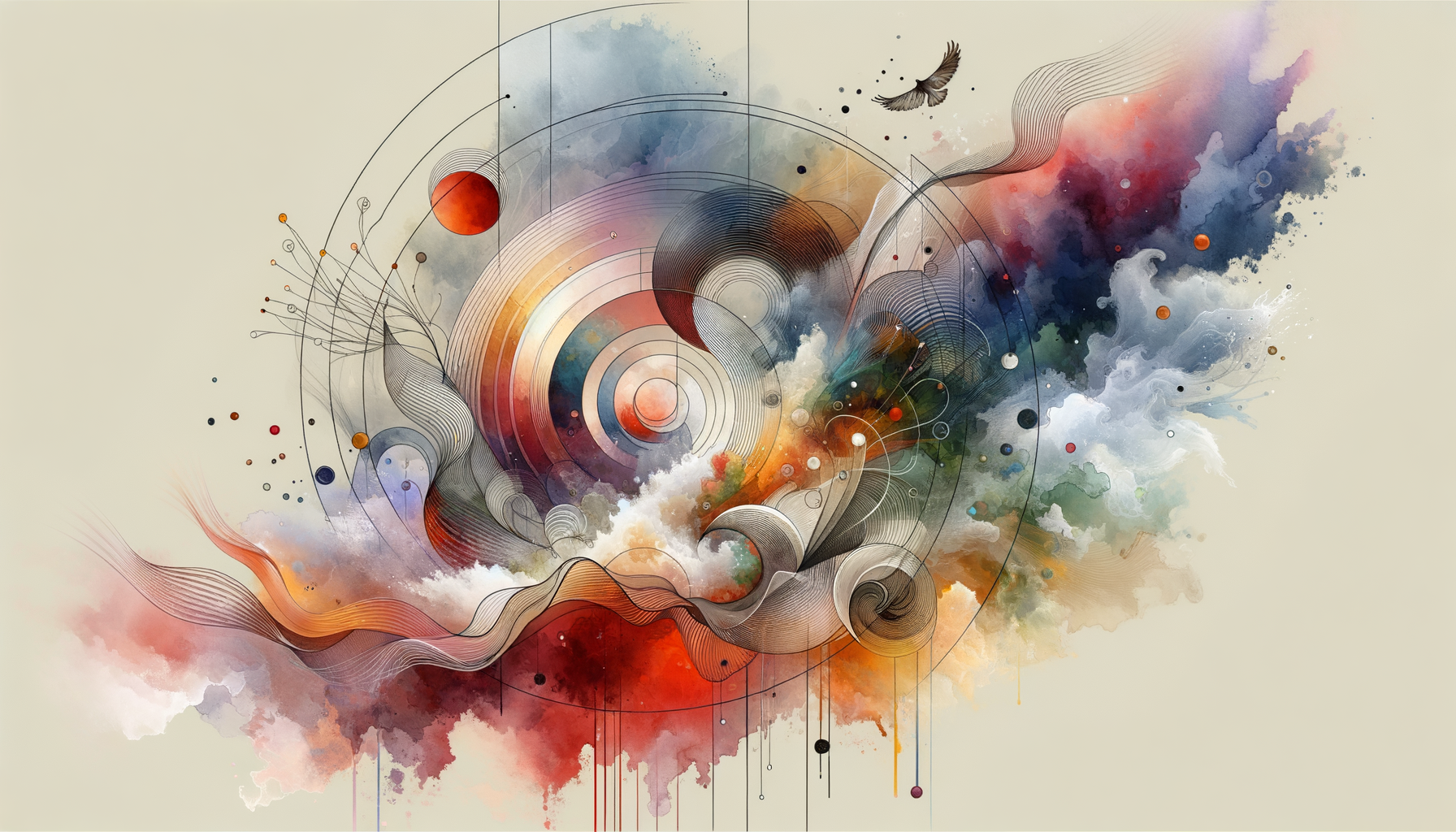The first time I felt pure joy doing something I loved, I wasn’t sitting at a desk meticulously editing sentences or compiling intricate research. No, I was 10 years old, hiding from my babysitter in a fort made of blankets, with flashlight beams cutting through the fabric weave. I had a hardbound notebook and a pen, and I was writing a story about… something ridiculous. I think it involved a time-traveling moose. I’m hazy on the details. But I do remember the feeling vividly: the rush of cobbling together words and ideas, like I’d found a hidden river in my brain, flowing with what felt like liquid gold.
Now, sure, a sweaty 10-year-old scribbling about a moose isn’t exactly what you signed up for when you clicked on an article from a dating and relationships publication. But stay with me—because here’s the thing about joy: it sneaks up on you. Much like love, or perfect avocado toast, or discovering that someone else also hates the "Skip Intro" button on Netflix (what kind of monster skips theme songs?). For me, joy showed up in writing—both pen-to-paper as a kid and later, as an adult, trying to untangle this messy, beautiful thing we call the human experience.
Let’s rewind, break this down, and maybe help you find your own version of that joy.
Act I: The Accidental Joy of Chasing a Hobby
When I was younger, I didn’t think much about writing as a "career" or a “calling,” because honestly, writing doesn’t scream stability. I come from a family where tech-related logic ruled the dinner table. My mom could debug a Wi-Fi outage faster than I could eat a slice of Kensington Market pizza (and trust me, I was an enthusiastic pizza eater). Writing a story about how a city changes with its people? Not exactly what my parents would’ve beta-tested for their only son.
Still, I carried around notebooks, treating them like they held alchemical secrets. I wasn’t a jock or a mathlete or DJing at middle school dances. Writing was how I made sense of life. I just thought everyone did it. Like some kids doodled; I jotted down dialogue for imaginary arguments between pigeons on the TTC. Looking back, it was the simplest—and most telling—form of joy. It picked me, not the other way around.
Joy is like that sometimes: quiet, unassuming, and buried under distractions. Once in a while, it's as loud as an Empire State Building proposal scene, but more often it whispers, nudging you toward something you had no intention of finding on purpose.
So, what was the thing you did as a kid, just for fun? Could you pick it up again? (And no, I’m not saying Spider-Man fan fiction counts as wasted time. Write it. The world needs more Peter Parker multiverse chaos.)
Act II: Turning the Thing You Love Into Something Real
Fast forward to university, and I started thinking maybe—just maybe—this thing I could sink hours into without a trace of boredom might actually add up to something. I mean, who goes to an English Literature program because they want a clear-cut plan for “success”? But there I was, in professor-run workshops, fumbling with metaphors while trying not to lose my mind over Canadian winters that made me wonder whether I should've just majored in hibernation instead.
Still, the joy of writing stuck. I interned at newspapers, learning the ropes from crotchety editors who told me to "write like you’re allergic to adverbs" (a rule I gleefully ignored). Left unchecked, my joy evolved into something more serious—but not in a “burned-out workaholic” way. Writing became a mirror. It was my way to reflect on everything: love, loss, city skylines, and existential crises in grocery store aisles over which artisanal bread to buy.
In a weird way, writing taught me what profound relationships feel like—whether it’s with myself, a loved one, or the reader on the other side of my words. It’s a dance. Sure, you need tension and pacing. But you also need vulnerability, the willingness to say, “This is where I’m at, and it’s messy.”
The thing about joy, though, is that it deepens when you share it. The first-ever article I wrote for a major publication was, admittedly, a lukewarm review of some forgettable indie art exhibit. Still, seeing my byline lit a spark—you know, like the moment someone texts back after you convinced yourself you misread the initial flirting. That spark was enough to keep the joy alive.
Actionable takeaway time: Ask yourself when you’ve felt most “in the zone.” What were you doing? Who were you with? Was it lonely but fulfilling, or did it hum with communal excitement? That’s your breadcrumb trail to joy.
Act III: Bringing That Joy to Relationships
By now, you may be rolling your eyes (I mean, wouldn’t 10-year-old moose-writing Dan be?). But here’s where all this ties neatly with dating and relationships: Joy, in its truest form, is magnetic. Authentic, unapologetic passion spills into everything you do, including how you show up for the people you care about.
I’ve seen it every time I start dating someone new. Sharing my weird mishmash of likes is both a litmus test and a way of anchoring myself. There was the guy who was quietly horrified when I started explaining my dream of crafting a hybrid dystopian romance novel. And then, there was the woman who suggested my moose story might work better as an animated series—and has been a good friend ever since. (Look, you don’t always get romance, but sometimes you get a lifelong reader of your paired chaos.)
This is my advice for you: Find your thing, your compass, your “moose story.” It’s an open secret that the happiest, most well-rooted people are the ones who let their essential joy lead them through life. They're better at love because they’re not looking for someone else to fill an existential black hole. They’ve already lit themselves up.
So next time you’re on a serious date—or a joy-powered one—ask a real question: “What lights you up?” Ask it like you mean it. Listen like you care. (And maybe share your answer. If it’s also time-traveling animals, we should talk.)
Conclusion: Go Find Your Joy, Already!
Not everyone’s joy comes early. Maybe you’re chasing yours through job after job, trying to make something stick. Maybe you left it behind years ago because who has time for hobbies when you’re navigating adulthood?
But here’s the spoiler: Joy waits.
Whether it’s scribbling on blank pages, sparkly dance shoes in a salsa class, or even perfecting your lemon ricotta pancake recipe—you’ll know it when you feel it. It’s the moment you stop caring whether the thing makes sense in the grand scheme of life. Joy is personal. Joy doesn’t need to justify itself.
So go build that fort. Write the story. Fall in love with the process. And when you find that quiet thrill of doing what you love, you might just find it seeps into every corner of your life—including the ones where connection starts and magic grows.




















